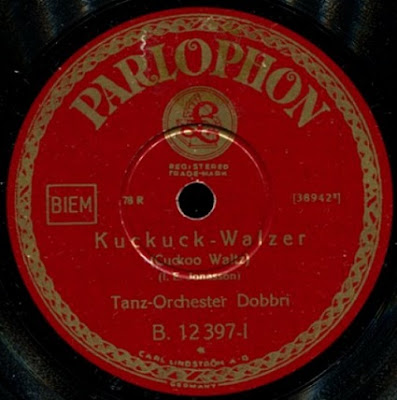In 2009 Sting recorded a song called "The Hurdy Gurdy Man" (NOT TO BE CONFUSED with the Donovan-song)
The song Sting covered was originally called "Der Leiermann", a song by Franz Schubert, which started life as a poem by Wilhelm Müller.
This poem was contained in Müller's 1824 book Gedichte aus den hinterlassenen Papieren eines reisenden Waldhornisten (=Poems from the posthumous papers of a travelling horn-player), dedicated to the composer Carl Maria von Weber (godfather of Müller's son F. Max Müller), 'as a pledge of his friendship and admiration'. Weber had died in 1826.
"Der Leiermann" was poem #24 of the "Die Winterreise" part in Wilhelm Müller's book.
On the next link you can read the complete book:
"Der Leiermann" as part of "Die Winterreise" is on page 107/108
Müller, a poet, soldier, and Imperial Librarian at Dessau in Prussia (present-day east-central Germany), died in 1827 aged 33, and probably never heard the first musical setting of his poems by Schubert.
Schubert composed the "Die Winterreise" songcycle in two parts, each containing twelve songs, the first part in February 1827 and the second in October 1827. The two parts were also published separately, by Tobias Haslinger, the first on 14 January 1828, and the second (the proofs of which Schubert was still correcting days before his death on 19 November) on 30 December 1828 in a book titled: Winterreise. Von Wilhelm Müller. In Musik gesetzt für eine Singstimme mit Begleitung des Pianoforte von Franz Schubert. 89tes Werk (=Winter Journey. By Wilhelm Müller. Set to music for a singing voice accompanied by the pianoforte by Franz Schubert. 89th work) (Verlagsnummern (=Publishers number) 5101 bis 5124) (D 911 op. 89)
On 4 March 1827, Schubert had invited a group of friends to his lodgings intending to sing the first group of songs, but he was out when they arrived, and the event was postponed until later in the year, when the full performance was given.
"Der Leiermann" was most likely introduced by Schubert´s friend, the baritone singer Johann Michael Vogl, who introduced Schubert and his songs into many musical households great and small in their tours through Austria during the mid-1820s.
Schubert's last task in life was the correction of the proofs for part 2 of Winterreise, and his thoughts while correcting those of the last song, "Der Leiermann", when his last illness was only too evident, can only be imagined. However, he had heard the whole cycle performed by Vogl (which received an enthusiastic reception).
Here is the autograph manuscript of Der Leiermann from February 1827
12 Der Leiermann is on the pdf-file below (pages 71-74)
Full texts of the songs with a translation by William Mann are here:
The first recording I could trace, is on a Pathe-cylinder (#042).
It was recorded in France between 1897-1900 by an anonymous performer.
SEE #6 on the next LINK: Search Results for 1897, Lehl
(c) Jeanne Marié de l'Isle (1906) (as "Le joueur de vielle")
Recorded 1906 in Paris
Matrix 6110o
Released on Zonophone X-83173
SEE: ARTIST_M.pdf
(c) Max Kacewiecz (1906) (as "Der Leiermann")
OtherNr: Globos 1036
The first recording I could find is a Russian version.
(c) Лев Михайлович Сибиряков (=Lev Mihaylovich Sibiryakov) (1910) (as "Шарманщикъ" ="Sharmanshchik")
Recorded February 23, 1910 at St Petersburg
Matrix 14815b
Released on Concert Record "Gramophone" GC 4-22135
The first German version till now I found
(c) Elena Gerhardt (1927) (as "Der Leiermann")
Coenraad V. Bos, piano
Recorded March 9, 1927
Matrix: Cc10424-2
Released on HMV D1264 (2-043066)
Or here:
(c) Richard Tauber (1927) (as "Die Winterreise - No 24: Der Leiermann")
Contributor : Mischa Spoliansky
Recorded June 20, 1927 in Berlin
Matrix Be 5860-1
Released on Columbia 17009-D (USA)/ Decca 20566 / Nippon Columbia J 5410 / Odeon 15022 B / Odeon 196.022 / Odeon O-4913 / Parlophone AR 118 / Parlophone RO 20042 (UK)
Or here:
Or here:
(c) George Henschel (1928) (as "Der Leiermann (The Hurdy Gurdy Man"))
Recorded March 3, 1928 in London
Matrix A 6892
Released on Columbia D1621 and D1657
Or here:
(c) Heinrich Rehkemper (1928) (as "Der Leiermann")
Manfred Gurlitt (Piano)
Recorded 1928 in Berlin
Matrix 1484bk
Released on Polydor 90019 and on Grammophon 90019
Listen here:
(c) Franz Völker (1928) (as "Der Leiermann")
Johannes Heidenreich, piano
Recorded June 2, 1928 in Berlin
Matrix 1167bm
Released on Polydor 19912 and Grammophon 19912
SEE: ARTIST_V.pdf
Listen here: Völker Leiermann.wav
Or here:
(c) John McCormack (1928) (as "The Hurdy Gurdy Man")
Nathaniel Shilkret (cond. orchestra)
Recorded November 28, 1928 in New York
Matrix: CVE 49213-3
Released on Victor 6928 as part the 78 RPM album "An Hour With Schubert" (Victor C-3)
Listen here:
(c) Gaston Angeli (1931) (as "Der Leiermann")
Arpad Sandor (piano)
Recorded May 1931
Released on Ultraphon A-4013
Listen here: DISMARC - Metastore - Detail view
(c) Gerhard Husch (1933) (as "Die Winterreise - 24 Der Leiermann")
Hanns Udo Müller: piano
Recorded August 3, 1933
Matrix: OD 1638-2
Released on Electrola DA 1346
Or here:
(c) Harry Plunket Greene (1934) (as "The Hurdy Gurdy Man")
Recorded January 10, 1934
Released on Columbia DB 1377
Or here:
(c) Lotte Lehmann (1941) (as "No 24 Der Leiermann")
Recorded March 19, 1941 in USA
Matrix Co30014-1
Released on Columbia 17369-D
Listen here: https://lottelehmannleague.org/-Der-Leiermann.mp3
Or here:
(c) Dietrich Fischer-Dieskau (1955) (as "Der Leiermann")
Recorded December 1, 1955
Matrix: ORA 7698-1
Released on Electrola DA5528
Listen here:
(c) Hannes Wader (1997) (as "Der Leiermann")
Guitar: Ralf Illenberger
Bass: Eberhard Weber
Listen here:
Here's a version by Michael Vereno, accompanied with a real Hurdy Gurdy, which gives the song an even more melancholic tone.
(c) Sting (2009) (as "The Hurdy-Gurdy Man")
Julian Sutton: melodeon
Listen here:
(c) De Dijk with Amsterdam Sinfonietta (2014) (as "De Muzikant")
Dutch lyrics Huub van der Lubbe
Listen here:


































